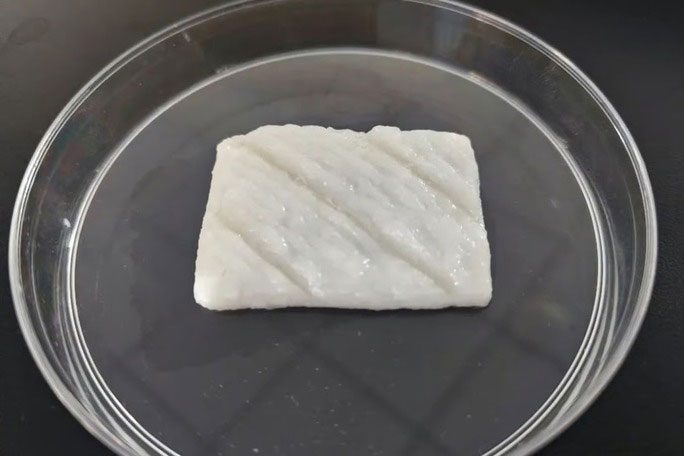A research team at Zhejiang University (China) has successfully created 1 cm fish fillets in a laboratory.

The lab-grown fish fillet. (Photo: Zhejiang University)
This product was developed in 17 days and is reported to be difficult to distinguish from natural fish in terms of flavor, color, and texture, according to the South China Morning Post on May 21.
Lab-grown meat is produced by culturing animal cells in a laboratory. This is considered a partial alternative to traditional livestock farming in meat production. Some researchers and companies have developed meat models from cows and pigs with the help of 3D printing technology.
However, the number of studies on lab-cultured marine fish remains limited, partly due to the high diversity of natural fish species and the lack of supporting technology.
The fish selected for this research was the large yellow croaker, a marine species of significant economic value in East Asia. It is favored for its taste and high nutritional value, but its population in the wild is declining significantly due to overfishing.
“Marine fish contain high-quality protein and unsaturated fatty acids, which have positive effects on health. This technology could help address the supply of meat and animal protein for humans. It also holds significant importance for marine fish conservation efforts,” said Liu Donghong, co-author of the study.


















































